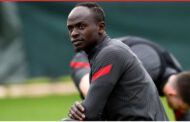Emboldened by his fresh mandate to lead world soccer, Sepp Blatter made it clear there may be consequences for European leaders who tried to oust him from FIFA.
“I forgive but I don’t forget,” Blatter said Saturday at FIFA headquarters.
The relationship between FIFA and UEFA will be one of the key issues for Blatter as he begins his fifth term as president of the governing body. UEFA President Michel Platini, who helped Blatter first gain the presidency in 1998, led opposition against his former ally.
Blatter didn’t extend much of an olive branch in his first news conference since Friday’s election, but did reiterate that he is “also the president of those associations that are against me.”
He also challenged UEFA to come back into the fold.
“(UEFA) have to be an example also and not only to say, ‘FIFA, what is FIFA?’ They shall help and come in and take responsibility,” Blatter said.
Repairing the relationship may not be so simple though. Following this week’s arrests of senior FIFA official as part of a U.S. investigation into soccer corruption, Platini appealed directly to Blatter to stand down. That request was unequivocally rejected and Platini now has to work with Blatter for four more years. However, the former France great said change is still crucial if FIFA “is to regain its credibility.”
Platini and other European officials have suggested UEFA should look into splitting with FIFA completely, although the consequences of such a drastic move would be so far-reaching that it seems highly implausible.
It would bar some of soccer’s biggest countries from the World Cup, and would cut off the European club game from the rest of the world. That could cause an exodus of non-European players, and Blatter reminded clubs of that.
“UEFA is the biggest (confederation), UEFA is the richest one, you have the best competition, you have the best players,” Blatter said. “If you don’t have players from the other continent, then they will not be so rich or so good in football.”
There was no immediate retribution toward Europe, though, as FIFA’s executive committee voted to make no changes to the format for World Cup qualifying spots. The decision ensures there will still be 13 European countries, plus host Russia, at the 32-team tournament in 2018. Europe will also have 13 teams at the World Cup in Qatar in 2022.
The executive committee also cleared the way for European countries to bid for the 2026 World Cup, despite previous comments by Blatter that it would be too soon after Russia hosts the 2018 tournament.
UEFA’s strategy for how to deal with Blatter may become clearer next week when the European body holds meetings in Berlin ahead of the Champions League final.
“There should be some kind of reaction,” said Dutch federation president Michael van Praag, who had been running for FIFA presidency before withdrawing last week to back Prince Ali.
But opposition to Blatter is not unanimous in Europe.
Russia is fiercely loyal to Blatter, having been awarded the 2018 World Cup under his watch. The Kremlin said President Vladimir Putin sent a telegram congratulating Blatter on his re-election and expressing confidence in his “experience, professionalism and high authority.”
France’s football federation also voted for Blatter, ignoring Frenchman Platini’s public appeals for the world to back Prince Ali.
Some of the strongest criticism of Blatter has come from England, and Blatter took a swipe at former Manchester United chief executive David Gill for rejecting the FIFA vice presidency he assumed directly before the 79-year-old Swiss was re-elected.
Gill said the pre-announced move was to defend his “professional reputation,” and that he didn’t want to serve under the current leadership.
Blatter said Gill had not informed FIFA directly of his resignation and was counted as a missing participant from Saturday’s executive committee meeting.
“You cannot take (responsibility) when you are elected and you don’t even come to the first meeting,” Blatter said. “You are elected you have to come, whoever is the president of FIFA. … He has given no excuse or reasons for not being present.”
___














